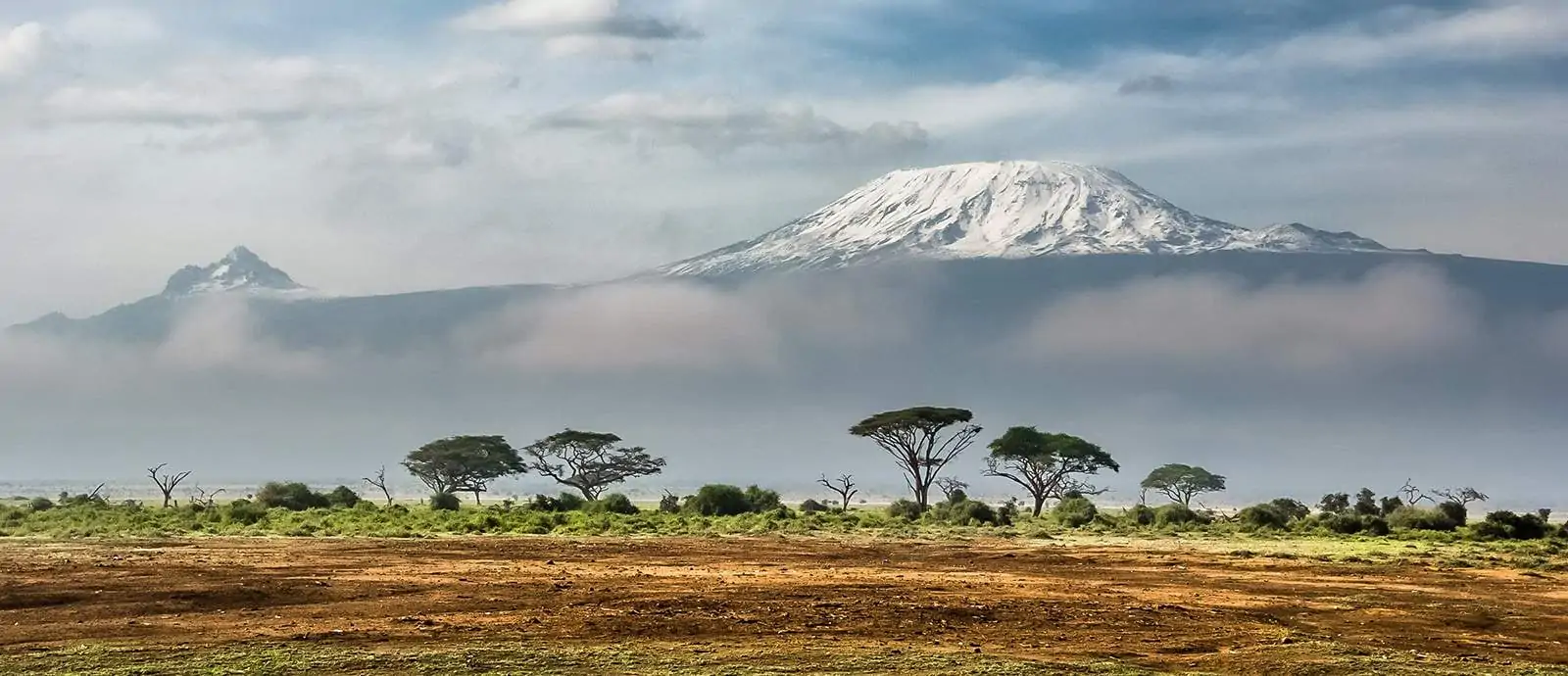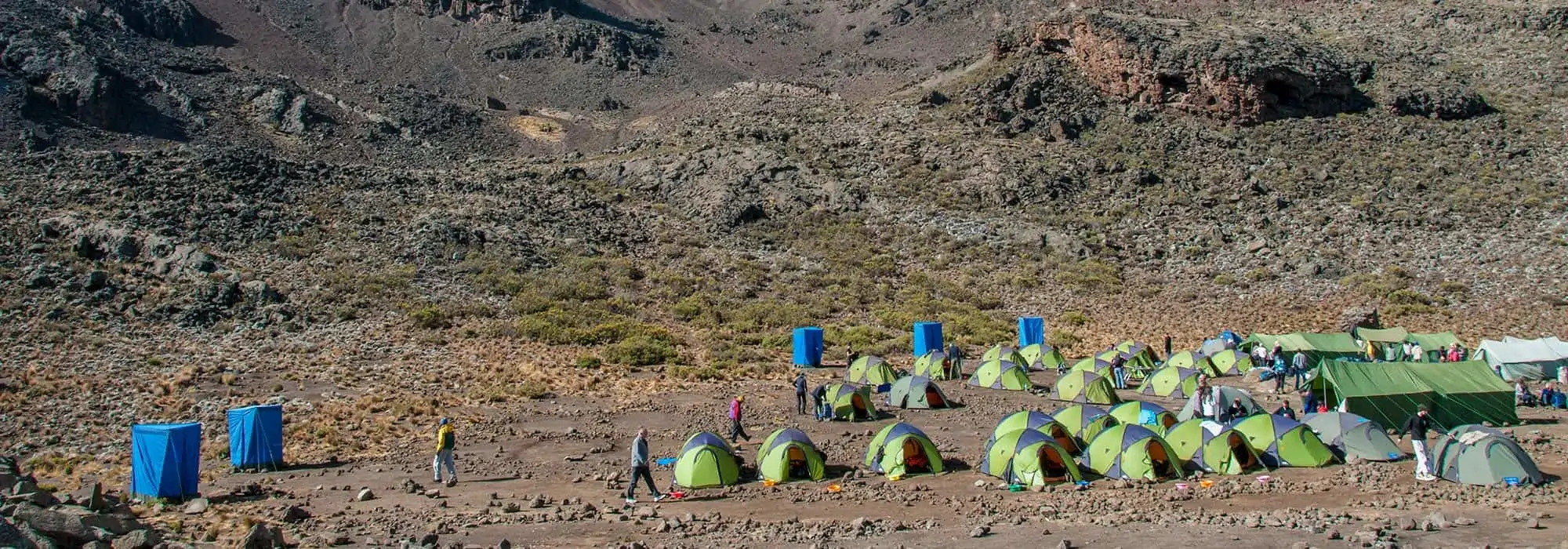
We understand that the ongoing pandemic involving the novel coronavirus, COVID-19, has caused concern for clients who are booked on trips with us, or are considering booking trips with us. We realize there are those who might avoid travel during these times.
In light of the ongoing situation, Peak Planet will continue to allow clients to defer their climbs up to one year from the original date of their trek if they are impacted by COVID directly and are not able to travel on their scheduled date. There is no fee to reschedule as long as we are notified 30 days or more prior to your trip start date. If we are notified within 30 days of your trip start date, there will be a $200 fee per person to reschedule. For safaris, we are restricted by individual booking terms with each of our partner hotels and tented camps. Therefore, clients may incur fees for rescheduling their safaris to cover our fixed costs.
The staff at Peak Planet would like to assure everyone that the safety and well-being of all our clients is very important to us, on and off the mountain. To do our part in preventing the spread of COVID-19 between our staff and clients, we have vaccinated 100% of our staff. We hope to see you in Tanzania soon.
 FREQUENTLY ASKED QUESTIONS
FREQUENTLY ASKED QUESTIONS
What is the current status of tourism in Tanzania?
Tanzania’s President declared that the country was open for tourism in May 2020. There are no travel restrictions for visitors who arrive from other countries, including no mandatory quarantines. However, thermal screening will be done at arrival points. Airlines have resumed flights in and out of Kilimanjaro Airport.
What precautions is the Tanzanian tourism industry taking during the pandemic?
The Ministry of Natural Resources and Tourism published detailed standard operating procedures for tourism staff, airports, ships, accommodations, and tour operators. These procedures outline common sense directives designed to reduce the risk of infection. These include the regular sanitizing of surfaces, washing hands, wearing PPE, and maintaining social distance. If a guest is found to be positive of COVID-19, arrangements will be made at the advice of the Rapid Response Team.
Please read the standard operating procedures to learn about the safeguards that are in place to reduce the risk of COVID-19 transmission while in country.
What is Peak Planet doing to keep its clients safe from COVID-19?
Many operators, including Peak Planet, were involved in the creation of the approved standard operating procedures. We believe in the new measures and will comply with them.
Our mountain staff has been trained on COVID procedures based on World Health Organization (WHO) guidance and the Standard Operating Procedures (SOP) put forth by the Tanzanian government. Below is a brief outline of the procedures.
1. Upon arrival at Kilimanjaro International Airport (JRO), Kilimanjaro National Park, and lodging, clients will be given a temperature check. Individuals showing signs or symptoms of COVID-19 will be directed to a medical team for further consultation.
2. 100% of our staff – including guides, cooks, porters, administrative staff and safari drivers – are COVID-19 vaccinated.
3. Our mountain crew will wear masks when they are in vehicles, at the park gate, and while they are at camp. Hotel staff will wear masks when interacting with clients.
4. Our mountain crew and hotel staff will maintain a distance of at least three feet (one meter) from clients. However, in dealing with a medical emergency, it may be necessary to be in closer proximity.
5. It is mandatory for all clients to wear a mask when traveling in vehicles and when in public places. Clients are required to supply their own masks. Medical masks (KN95, N95, surgical masks) and non-medical face coverings (cloth mask, neck gaiter, Buff) are both sufficient.
6. Clients are required to supply their own hand sanitizer. They should carry hand sanitizer on their person at all times and use it often, especially after any contact with another person, before eating, and after using the toilet.
7. Participation in a trip is completely voluntary. Clients acknowledge that they may be exposed to COVID-19 during the course of the trip and that there is a risk of infection.
All equipment will be disinfected prior to use. Our staff will wear PPE when in close proximity to our clients. The number of crew members who interact with a client and handle a client’s belongings will be limited. In addition, we have additional opportunities to maintain social distance on the mountain by offering single tents and rooms for single travelers, and serving meals in separate tents if desired.
What do I need to do if COVID has impacted me and I need to postpone my trip?
Clients may defer their climbs up to one year from the original date. Email us at info@peakplanet.com and let us know you intend to defer your trip. There is no fee to reschedule a climb as long as we are notified 30 days or more prior to your trip start date. If we are notified within 30 days of your trip start date, there will be a $200 fee per person to reschedule a climb. However, some portions or all of the costs for accommodations during safaris and Zanzibar extensions may be forfeited if we cannot get permission from the lodges to change dates.
What are the current regulations in regards to COVID in Tanzania?
The Tanzanian Government revised travel restrictions, with Tanzania Travel Advisory No 12 in January 2023. Under the new policies, all travelers are exempted from all testing requirements to enter Tanzania. Further, the Traveler’s Surveillance Form no longer needs to be filled out.
Be sure to regularly check the regulations surrounding travel for your home country as well as for flight connections pertaining to your international travel. We cannot be responsible for clients who are not allowed to travel due to failure to comply with travel requirements.
Can I get a COVID-19 test in Tanzania?
COVID-19 PCR testing is available in the two gateway cities from where we begin our Kilimanjaro climbs and safaris: Moshi (Mawenzi Hospital, KCMC Hospital) and Arusha (Mount Meru Hospital, Arusha Lutheran Hospital, Fame Medical Health Center).
Testing is also available in the areas we visit during safaris: Mayara (Manyara Regional Hospital), Karatu (FAME Medical), Ngorongoro Conservation Area, Serengeti (Seronera Covid-19 Sample Collection Centre).
There is also a testing center in Zanzibar (Emergency Response Unit in Stone Town).
PCR testing is considered the gold standard in COVID-19 detection. This test detects RNA or genetic material that is specific to the virus and can detect the virus within days of infection, even those who have no symptoms.
Currently the turnaround time for Covid PCR test results can be up to 48 hours. However, on December 27, 2020, the Government Chief Medical Officer directed the health laboratory to improve the turnaround time to less than 24 hours. We will report if this occurs. The cost is $50 (USD).
Our staff will help you get to the PCR test sites and obtain the lab results if you need assistance. Please be sure to inform them at the trek briefing if you do need testing to return home, so that they can ensure that the arrangements are organized accordingly.
Should I get travel insurance?
Travel insurance is mandatory for participation on our trips. However, during this time it is even more important for you to obtain travel insurance soon after booking to protect you from unforeseen circumstances. For US residents, we recommend Travel Guard’s Preferred Travel Insurance Plan with the upgrade for cancellation for any reason. For non-US residents, we recommend World Nomad’s Explorer Policy.
Are you taking new bookings for climbs and safaris?
Yes, we continue to book clients for ongoing trips. See Dates & Prices.


